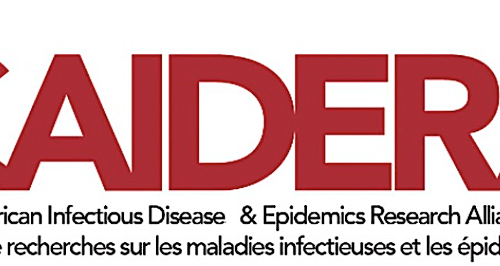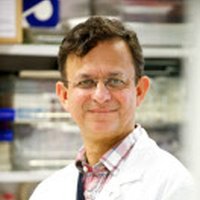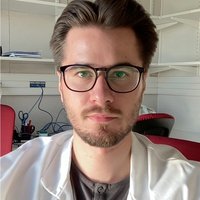Malaria
- Duration: 2 months
- Effort: 33 hours
- Pace: ~16h30/month
- Languages: English and french
What you will learn
At the end of this course, you will be able to:
- Describe the biology of Plasmodium parasites and their interaction with its human host and mosquito vector
- Explain the pathogenic mechanisms by which Plasmodium parasites cause malaria
- Define the drugs used for the treatment of Malaria and the parasite resistance against these drugs
- Discuss the development of new vaccines and how the parasite evade immune responses
- Outline the ecology of anopheles mosquitoes and the use of vector control to fight against malaria
Description
Malaria is an ancient disease that has affected humanity for ages.
It remains a major public health problem in many tropical countries today. Despite intensive control efforts over the past decade as many as 240 million malaria cases were reported in 2020 that led to more than 627,000 deaths, primarily in young children less than 5 years old.The objective of this MOOC is to provide participants with a glimpse of the wide range of disciplines involved and questions addressed in malaria research.
Format
This MOOC is organized in 6 weeks. Each week is composed of 5 to 6 lectures. Each lecture includes a 10 minute video and multiple choice questions to help participants test their understanding. The videos are in English, subtitled in French and in English. All the tests are in English and in French.
10 sessions were updated in 2022.
Want to stay informed? Follow us on LinkedIn, X- Twitter and YouTube to discover all our events.
Prerequisites
This MOOC is open to everyone interested in malaria, with a good scientific background. A bachelor of science is recommended to follow this MOOC.
Assessment and certification
To follow this course, you can choose between two options:
- The Discovery Course gives access to videos, quizzes and discussions in the forum. No badge is issued for this course. Registration is free.
- The Qualifying Course leads to a certificate. In addition to the activities of the Discovery Course, you will have to take a one-hour supervised distance learning exam, consisting of 30 multiple-choice questions (MCQs) and obtaining 18 correct answers. The registration fee for the Qualifying Course is 150€.
Successful completion of the Qualifying Course gives you the opportunity to apply for the Institut Pasteur Online Diploma of Infectious Diseases (DNM2IP), which consists of 5 certificates to Institut Pasteur MOOCs on infectious diseases. To learn more, visit the Institut Pasteur's web page dedicated to this diploma.
Course plan
- C1-1: History of malaria and course présentation / Chetan Chitnis
- C1-2: Epidemiology of malaria / Ivo Muller
- C1-3: Clinical presentation of malaria / Pierre Buffet
- C1-4: Pathophysiology of malaria / Pierre Buffet
- C1-5: Malaria diagnosis / Frederik Gay
- C2-1: Pre-erythrocytic phase (and zoite motility) / Olivier Silvie
- C2-2: Erythrocytic phase (and zoite invasion) / Chetan Chitnis
- C2-3: Sexual and mosquito phase / Catherine Lavazec
- C2-4: Cytoadherence and antigenic Variation / Benoit Gamain
- C2-5: Malaria in Pregnancy / Benoit Gamain
- C3-1: The Plasmodium genome and its expression / Frédéric Ariey
- C3-2: Genomic techniques / Frédéric Ariey
- C3-3: Parasite transfection / Aditi Alaganan
- C3-4: Genome manipulation / Robert Ménard
- C3-5: CRISPR-Cas9 / Jose-Juan Lopez Rubio
- C4-1: Anti-malarial drugs / Frédéric Ariey
- C4-2: Drug treatment and follow-up / Pierre Buffet
- C4-3: Drug treatment and public health / Frédérick Gay
- C4-4: Drug resistance / Didier Ménard
- C4-5: Research on new drugs / Tim Wells
- C5-1 : Immunity to Plasmodium / Amy Bei
- C5-2: Immune evasion / Odile Puijalon
- C5-3: Pre-erythrocytic stage vaccines / Rogério Amino
- C5-4: Blood stage vaccines / Chetan Chitnis
- C5-5: Use of challenge model / Akim Adegnika
- C6-1: Ecology of anopheline mosquitoes / Ken Vernick
- C6-2: Vector control for malaria / Vincent Robert
- C6-3: Use of Transgenic Mosquitoes for Malaria Elimination / Tony Nolan
- C6-4: Parasite dormancy and quiescence / Didier Ménard
- C6-5 : The case of Plasmodium vivax / Ivo Mueller
- C6-6: Malaria eradication program / Pedro Alonso
Course team
Chetan Chitnis
Categories
Francisco Martinez-Blazquez
Categories
Organizations
Our social networks

X - Twitter
Pasteur Education
Institut Pasteur Education
YouTube
Institut Pasteur Education
With the participation of
Akim ADEGNIKA, CERMEL, Gabon - Aditi ALAGANAN, Institut Pasteur, Paris, France - Pedro ALONSO, Barcelona university, Barcelona, Spain - Rogerio AMINO, Institut Pasteur, Paris, France - Frederic ARIEY, Hôpital Cochin, Paris, France - Amy BEI, Institut Pasteur, Dakar, Senegal - Pierre BUFFET, Institut Pasteur, Paris, France - Chetan CHITNIS, Institut Pasteur, Paris, France - Benoit GAMAIN, Institut National de Transfusion Sanguine (INTS), Paris, France - Fréderic GAY, Hôpital Pitié-Salpêtrière, Paris, France - Gordon LANGSLEY, Institut Cochin, Paris, France - Catherine LAVAZEC, Institut Cochin, Paris, France - Jose-Juan LOPEZ RUBIO, Université de Montpellier, Montpellier, France - Didier MENARD, Institut Pasteur, Paris, France - Robert MENARD, Institut Pasteur, Paris, France -Ivo MUELLER, WEHI, Basel, Swiss - Tony NOLAN, Liverpool School of Tropical Medicine, United Kingdom - Odile PUIJALON, Institut Pasteur, Paris, France -Vincent ROBERT, Institut de Recherche pour le Développement, Montpellier, France - Olivier SILVIE, Hôpital Pitié-Salpêtrière, Paris, France - Ken VERNICK, Institut Pasteur, Paris, France - Tim WELLS, Medicines for Malaria Venture, Geneva, Swiss.
With the support of :

License
License for the course content

Attribution-NonCommercial-NoDerivatives
You are free to:
- Share — copy and redistribute the material in any medium or format
Under the following terms:
- Attribution — You must give appropriate credit, provide a link to the license, and indicate if changes were made. You may do so in any reasonable manner, but not in any way that suggests the licensor endorses you or your use.
- NonCommercial — You may not use the material for commercial purposes.
- NoDerivatives — If you remix, transform, or build upon the material, you may not distribute the modified material.
License for the content created by course participants

Attribution-NonCommercial-NoDerivatives
You are free to:
- Share — copy and redistribute the material in any medium or format
Under the following terms:
- Attribution — You must give appropriate credit, provide a link to the license, and indicate if changes were made. You may do so in any reasonable manner, but not in any way that suggests the licensor endorses you or your use.
- NonCommercial — You may not use the material for commercial purposes.
- NoDerivatives — If you remix, transform, or build upon the material, you may not distribute the modified material.




